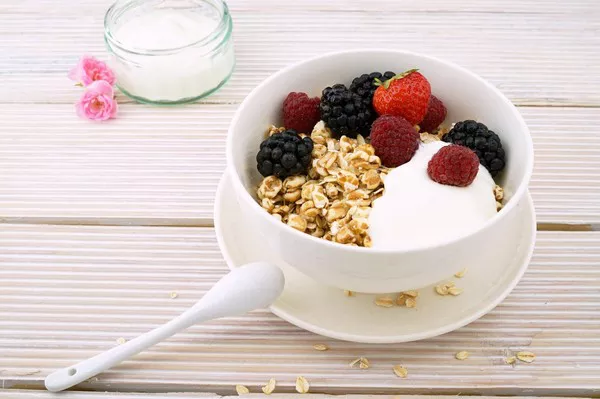B vitamins are a group of essential nutrients that play a critical role in maintaining overall health and well-being. Often referred to as the “B-complex,” these vitamins include B1 (thiamine), B2 (riboflavin), B3 (niacin), B5 (pantothenic acid), B6 (pyridoxine), B7 (biotin), B9 (folate), and B12 (cobalamin). Each member of the B-complex family has its own unique functions and benefits, contributing to various aspects of health. In this comprehensive guide, we’ll explore why B vitamins are crucial for your body and why you should prioritize them in your diet.
The Foundation of Energy Production: B Vitamins and Metabolism
One of the most prominent roles of B vitamins is their involvement in energy metabolism. They act as coenzymes, which means they assist enzymes in breaking down carbohydrates, fats, and proteins from the foods you consume into energy that your body can use. Here’s a closer look at how specific B vitamins contribute to energy production:
1. B1 (Thiamine): Thiamine helps convert carbohydrates into energy by assisting in the breakdown of glucose, the body’s primary energy source.
2. B2 (Riboflavin): Riboflavin is essential for the metabolism of fats, drugs, and steroids. It also plays a role in energy production from carbohydrates.
3. B3 (Niacin): Niacin is involved in over 200 enzymatic reactions in the body, including those that contribute to energy metabolism.
4. B5 (Pantothenic Acid): Pantothenic acid is a key component of coenzyme A, which is essential for the oxidation of fatty acids and carbohydrates.
5. B6 (Pyridoxine): Pyridoxine is involved in amino acid metabolism and the breakdown of glycogen (stored glucose) for energy.
Mood, Memory, and Mental Health: B Vitamins and Brain Function
B vitamins are closely linked to brain function and mental well-being. They play a pivotal role in mood regulation, memory enhancement, and cognitive health. Here’s how specific B vitamins contribute to brain function:
1. B1 (Thiamine): Thiamine is essential for the production of neurotransmitters, such as acetylcholine, which are critical for memory and learning.
2. B6 (Pyridoxine): Pyridoxine is involved in the synthesis of neurotransmitters like serotonin, which influences mood and sleep.
3. B9 (Folate): Folate plays a crucial role in DNA synthesis and repair. Adequate folate intake during pregnancy is vital for proper brain development in the fetus.
4. B12 (Cobalamin): Cobalamin is essential for the maintenance of myelin, a protective sheath around nerve cells. It also aids in the production of neurotransmitters.
Heart Health and Blood Cell Formation: B Vitamins in Action
B vitamins contribute significantly to heart health and the formation of red blood cells. They help reduce the risk of cardiovascular diseases and ensure that your body has an adequate supply of oxygen-carrying red blood cells. Here’s how specific B vitamins support these functions:
1. B3 (Niacin): Niacin can help raise HDL (good) cholesterol levels while lowering LDL (bad) cholesterol levels, reducing the risk of heart disease.
2. B6 (Pyridoxine): Pyridoxine helps regulate homocysteine levels. Elevated homocysteine is a risk factor for heart disease.
3. B9 (Folate): Folate helps lower homocysteine levels and contributes to proper blood cell formation.
4. B12 (Cobalamin): Cobalamin is essential for red blood cell production and the prevention of anemia.
Skin, Hair, and Nail Health: B Vitamins and Beauty
B vitamins are not only vital for internal health but also play a role in maintaining the health and appearance of your skin, hair, and nails. Here’s how specific B vitamins contribute to your beauty regimen:
1. B3 (Niacin): Niacin can improve skin health by helping with the repair and maintenance of the skin barrier. It’s often used in skincare products to treat various skin conditions.
2. B7 (Biotin): Biotin is renowned for its role in promoting healthy hair, skin, and nails. It’s a common ingredient in beauty supplements.
3. B5 (Pantothenic Acid): Pantothenic acid helps maintain the health of your skin by supporting the production of oils.
Immune Function and Overall Health: B Vitamins and Beyond
In addition to their primary roles, B vitamins contribute to a wide range of bodily functions that impact overall health and well-being. These functions include:
1. Immune Support: B vitamins, particularly B6, B9, and B12, are essential for a well-functioning immune system. They assist in the production of immune cells and antibodies.
2. DNA Synthesis: B vitamins are involved in the synthesis and repair of DNA, which is crucial for cell growth and reproduction.
3. Detoxification: B vitamins aid in the body’s detoxification processes by supporting the liver’s function.
4. Hormone Regulation: Some B vitamins, such as B6, play a role in hormone regulation and can alleviate symptoms of premenstrual syndrome (PMS).
Conclusion
The importance of B vitamins cannot be overstated. They are involved in fundamental processes that impact nearly every aspect of your health, from energy production and brain function to heart health, beauty, and immune support. To ensure you receive an adequate supply of B vitamins, maintain a balanced diet that includes a variety of foods rich in these essential nutrients. Additionally, consult with a healthcare professional or registered dietitian if you have specific concerns about your B vitamin intake or are considering supplements to address deficiencies. By prioritizing B vitamins, you can pave the way for a healthier and more vibrant life.\
[inline_related_posts title=”Related Topics” title_align=”left” style=”list” number=”3″ align=”none” ids=”2305,2262,2067″ by=”categories” orderby=”rand” order=”DESC” hide_thumb=”no” thumb_right=”no” views=”no” date=”yes” grid_columns=”1″ post_type=”” tax=””]



































